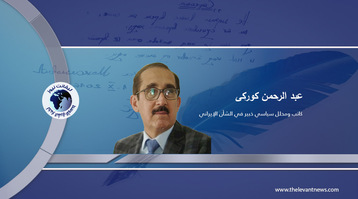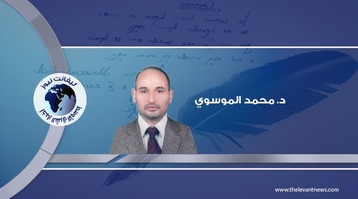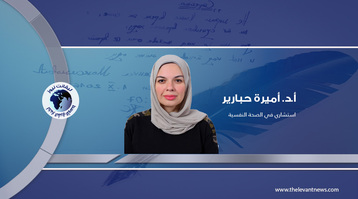-
Erdogan’s troublesome Turkey

Recep Tayip Erdogan, Turkey’s president, has been generating a flurry of new headlines in recent months that have reinforced the impression of his growing assertiveness.
One is about Erdogan’s wish to buy a missile defence system from Russia - despite the country’s Nato membership. Another is tensions with Greece over energy resources in the Eastern Mediterranean. And then there is its self-interested military intervention in Libya and Ankara’s wider support for Islamist groups. The list is long - and growing.
The president’s ambitions for regional hegemony have been fuelled by involvement in Syria’s bloody war, now in its 10th year. Turkey controls significant areas of its neighbour, including Kurdish towns, with more than 10,000 troops. It has also had no hesitation in using refugee flows from there to pressurize and threaten the European Union.
And when Erdogan announced in July that he was authorising the transformation of Istanbul’s Hagia Sophia (built in the sixth century as a Byzantine church and converted by Kemal Ataturk into a museum) into a mosque - he annoyed Christians and Arabs who felt that this was a move to please Muslims and to revive the spirit of the Ottoman Empire.
These disparate events all point in one direction: Turkey’s veteran populist president, who likes to be seen as a strongman, is adopting more aggressive foreign and security policies and deploying military power to expand the country’s sphere of influence.
Geography matters of course. Turkey has always been an important country because of its strategic location at the crossroads of Europe and Asia, and especially close to the conflict-ridden Middle East.
Unlike most Arab and Muslim states, it has diplomatic relations with Israel but is also supportive, at least at the rhetorical level, of the Palestinian cause. Jordan, which enjoys a special status on the Haram al-Sharif in East Jerusalem, has been disturbed by Turkish competition. The Palestinian Authority in Ramallah is upset by Ankara’s support for Hamas, the Islamist movement that controls the Gaza Strip.
On August 25 the US state department condemned a meeting between Erdogan and Ismail Haniyeh, the leader of Hamas, which Washington, the EU and Israel have long designated as a terrorist organisation. And when the UAE and Israel announced their ground-breaking peace agreement on August 13, Turkey threatened to withdraw its ambassador from Abu Dhabi. No surprise that it was accused of hypocrisy!
Turkey is seen by Saudi Arabia as seeking to undermine its own control of Mecca and Medina. Its close friendship with Qatar, which includes a military base in the emirate and generous financial support from Doha, does not help. Nor does the absorption of thousands of Egyptian Muslim Brotherhood activists and granting them refugee status.
These problems are with the Arab world, but Erdogan has also incurred the wrath of Nato and the EU, as well as powerful members of both organisations like France, which blocked Ankara’s last effort to join the EU in 2007. Relations have deteriorated, with Nato diplomats recently describing Turkey as “the elephant in the room” of its Brussels headquarters.
In mid-June three Turkish warships escorting a vessel that was thought to be smuggling weapons to Libya - in breach of a UN arms embargo - were challenged by a French frigate which was then forced to withdraw. Ankara backs the UN-recognized government in Tripoli, and last year signed a deal that demarcated their respective maritime boundaries and supposedly gave Turkey the right to drill in waters off Greek islands. Many of its rivals, including the UAE and Egypt, support General Khalifa Haftar, the sworn enemy of the Tripoli government.
Similar Turkish maritime confrontations have taken place in disputed waters off Greece, which are also of energy interest to Egypt, Israel and Italy. Tensions have been aggravated by long-standing disagreements over Cyprus, where the Turkish Republic in the north of the island is recognized only by Ankara.
In Washington, US officials are disturbed by the fact that Erdogan deals only with President Trump - another example of the dysfunctionality of American foreign and defence policies when the occupant of the White House is so admiring of authoritarian leaders. After talking to his Turkish counterpart last October, Trump unilaterally decided to pull US troops out of northern Syria, where they were fighting Isis, leaving Nato allies to clear up the mess.
Mounting domestic repression in Turkey is also part of the story, especially since the 2016 coup attempt, when more than 50,000 people - especially journalists - but also many military personnel were gaoled. A recent crackdown on social media has earned Erdogan the nickname “Sultan of Censorship.” Another factor is the country’s deepening economic crisis - compounded by the Covid pandemic - with unemployment predicted to rise to 30%.
Erdogan’s domestic critics have long called him an autocrat who refuses to tolerate dissent, and who silences anyone who opposes him. Now they are joined by many foreign governments - Americans, Europeans and Arabs alike - who view him as a leader who selfishly pursues Turkey’s interests regionally and internationally. He may well turn out to be the victim of his own success.
IAN BLACK
You May Also Like
Popular Posts
Caricature
Syrians' concerns now
- December 10, 2024
Syrians' concerns now #Syria
#Bashar_al-Assad
#Liberation_of_Syria
#Syrians
#Future_of_Syria
#Levant_News

opinion
Report
ads
Newsletter
Subscribe to our mailing list to get the new updates!



















